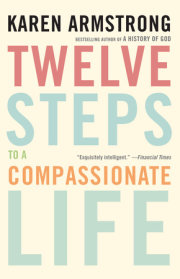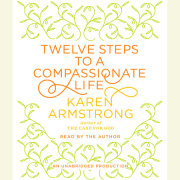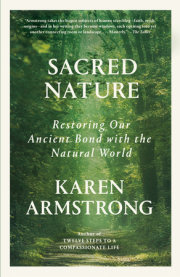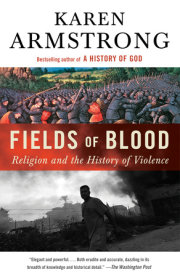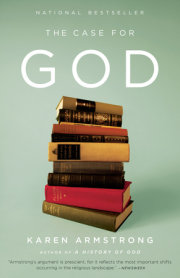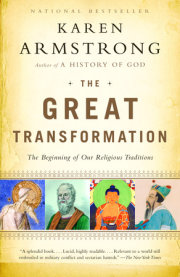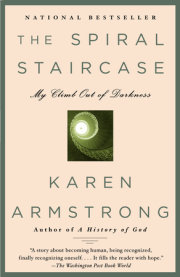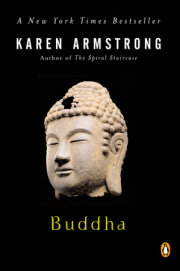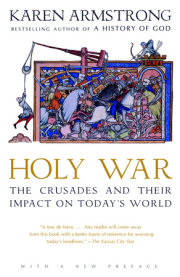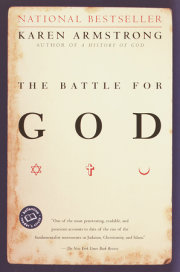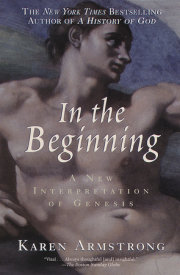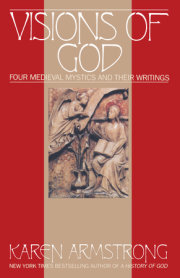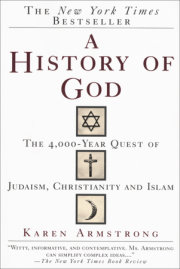Preface
Wish for a Better World
In November 2007, I heard that I had won a prize. Each year TED (the acronym for Technology, Entertainment, Design), a private nonprofit organization best known for its superb conferences on “ideas worth spreading,” gives awards to people whom they think have made a difference but who, with their help, could make even more of an impact. Other winners have included former U.S. president Bill Clinton, the scientist E. O. Wilson, and the British chef Jamie Oliver. The recipient is given $100,000 but, more important, is granted a wish for a better world. I knew immediately what I wanted. One of the chief tasks of our time must surely be to build a global community in which all peoples can live together in mutual respect; yet religion, which should be making a major contribution, is seen as part of the problem. All faiths insist that compassion is the test of true spirituality and that it brings us into relation with the transcendence we call God, Brahman, Nirvana, or Dao. Each has formulated its own version of what is sometimes called the Golden Rule, “Do not treat others as you would not like them to treat you,” or in its positive form, “Always treat others as you would wish to be treated yourself.” Further, they all insist that you cannot confine your benevolence to your own group; you must have concern for everybody—even your enemies.
Yet sadly we hear little about compassion these days. I have lost count of the number of times I have jumped into a London taxi and, when the cabbie asks how I make a living, have been informed categorically that religion has been the cause of all the major wars in history. In fact, the causes of conflict are usually greed, envy, and ambition, but in an effort to sanitize them, these self-serving emotions have often been cloaked in religious rhetoric. There has been much flagrant abuse of religion in recent years. Terrorists have used their faith to justify atrocities that violate its most sacred values. In the Roman Catholic Church, popes and bishops have ignored the suffering of countless women and children by turning a blind eye to the sexual abuse committed by their priests. Some religious leaders seem to behave like secular politicians, singing the praises of their own denomination and decrying their rivals with scant regard for charity. In their public pronouncements, they rarely speak of compassion but focus instead on such secondary matters as sexual practices, the ordination of women, or abstruse doctrinal formulations, implying that a correct stance on these issues—rather than the Golden Rule—is the criterion of true faith.
Yet it is hard to think of a time when the compassionate voice of religion has been so sorely needed. Our world is dangerously polarized. There is a worrying imbalance of power and wealth and, as a result, a growing rage, malaise, alienation, and humiliation that has erupted in terrorist atrocities that endanger us all. We are engaged in wars that we seem unable either to end or to win. Disputes that were secular in origin, such as the Arab-Israeli conflict, have been allowed to fester and become “holy,” and once they have been sacralized, positions tend to harden and become resistant to pragmatic solutions. And yet at the same time we are bound together more closely than ever before through the electronic media. Suffering and want are no longer confined to distant, disadvantaged parts of the globe. When stocks plummet in one country, there is a domino effect in markets all around the world. What happens today in Gaza or Afghanistan is now likely to have repercussions tomorrow in London or New York. We all face the terrifying possibility of environmental catastrophe. In a world in which small groups will increasingly have powers of destruction hitherto confined to the nation-state, it has become imperative to apply the Golden Rule globally, ensuring that all peoples are treated as we would wish to be treated ourselves. If our religious and ethical traditions fail to address this challenge, they will fail the test of our time.
So at the award ceremony in February 2008, I asked TED to help me create, launch, and propagate a Charter for Compassion that would be written by leading thinkers from a variety of major faiths and would restore compassion to the heart of religious and moral life. The charter would counter the voices of extremism, intolerance, and hatred. At a time when religions are widely assumed to be at loggerheads, it would also show that, despite our significant differences, on this we are all in agreement and that it is indeed possible for the religious to reach across the divide and work together for justice and peace.
Thousands of people from all over the world contributed to a draft charter on a multilingual website in Hebrew, Arabic, Urdu, Spanish, and English; their comments were presented to the Council of Conscience, a group of notable individuals from six faith traditions (Judaism, Christianity, Islam, Hinduism, Buddhism, and Confucianism), who met in Switzerland in February 2009 to compose the final version:
"The principle of compassion lies at the heart of all religious, ethical and spiritual traditions, calling us always to treat all others as we wish to be treated ourselves.
Compassion impels us to work tirelessly to alleviate the suffering of our fellow creatures, to dethrone ourselves from the centre of our world and put another there, and to honour the inviolable sanctity of every single human being, treating everybody, without exception, with absolute justice, equity and respect.
It is also necessary in both public and private life to refrain consistently and empathically from inflicting pain. To act or speak violently out of spite, chauvinism or self-interest, to impoverish, exploit or deny basic rights to anybody, and to incite hatred by denigrating others—even our enemies—is a denial of our common humanity. We acknowledge that we have failed to live compassionately and that some have even increased the sum of human misery in the name of religion.
We therefore call upon all men and women
• to restore compassion to the centre of morality and religion;
• to return to the ancient principle that any interpretation of scripture that breeds violence, hatred or disdain is illegitimate;
• to ensure that youth are given accurate and respectful information about other traditions, religions and cultures;
• to encourage a positive appreciation of cultural and religious diversity;
• to cultivate an informed empathy with the suffering of all human beings—even those regarded as enemies.
We urgently need to make compassion a clear, luminous and dynamic force in our polarized world. Rooted in a principled determination to transcend selfishness, compassion can break down political, dogmatic, ideological and religious boundaries. Born of our deep interdependence, compassion is essential to human relationships and to a fulfilled humanity. It is the path to enlightenment, and indispensible to the creation of a just economy and a peaceful global community."
The charter was launched on November 12, 2009, in sixty different locations throughout the world; it was enshrined in synagogues, mosques, temples, and churches as well as in such secular institutions as the Karachi Press Club and the Sydney Opera House. But the work is only just beginning. At this writing, we have more than 150 partners working together throughout the globe to translate the charter into practical, realistic action.
But can compassion heal the seemingly intractable problems of our time? Is this virtue even feasible in the technological age? And what does “compassion” actually mean? Our English word is often confused with “pity” and associated with an uncritical, sentimental benevolence: the
Oxford English Dictionary, for example, defines “compassionate” as “piteous” or “pitiable.” This perception of compassion is not only widespread but ingrained. When I gave a lecture in the Netherlands recently, I emphatically made the point that compassion did
not mean feeling sorry for people, but the Dutch translation of my text in the newspaper
De Volkskrant consistently rendered “compassion” as “pity.” But “compassion” derives from the Latin
patiri and the Greek
pathein, meaning “to suffer, undergo, or experience.” So “
compassion” means “to endure [something]
with another person,” to put ourselves in somebody else’s shoes, to feel her pain as though it were our own, and to enter generously into his point of view. That is why compassion is aptly summed up in the Golden Rule, which asks us to look into our own hearts, discover what gives us pain, and then refuse, under any circumstance whatsoever, to inflict that pain on anybody else. Compassion can be defined, therefore, as an attitude of principled, consistent altruism.
The first person to formulate the Golden Rule, as far as we know, was the Chinese sage Confucius (551–479 BCE), who when asked which of his teachings his disciples could practice “all day and every day” replied: “Perhaps the saying about
shu (“consideration”). Never do to others what you would not like them to do to you.” This, he said, was the thread that ran right through the spiritual method he called the Way (
dao) and pulled all its teachings together. “Our Master’s Way,” explained one of his pupils, “is nothing but this: doing-your-best-for-others (
zhong) and consideration (
shu).” A better translation of
shu is “likening to oneself”; people should not put themselves in a special, privileged category but relate their own experience to that of others “all day and every day.” Confucius called this ideal
ren, a word that originally meant “noble” or “worthy” but which by his time simply meant “human.” Some scholars have argued that its root meaning was “softness,” “pliability.” But Confucius always refused to define
ren, because, he said, it did not adequately correspond to any of the familiar categories of his day. It could be understood only by somebody who practiced it perfectly and was inconceivable to anybody who did not. A person who behaved with
ren “all day and every day” would become a
junzi, a “mature human being.”
Compassion, therefore, was inseparable from humanity; instead of being motivated by self-interest, a truly humane person was consistently oriented to others. The disciplined practice of
shu took you into a dimension of experience that was transcendent because it went beyond the egotism that characterizes most human transactions. The Buddha (c. 470–390 BCE) would have agreed. He claimed to have discovered a realm of sacred peace within himself that he called
nirvana (“blowing out”), because the passions, desires, and selfishness that had hitherto held him in thrall had been extinguished like a flame. Nirvana, he claimed, was an entirely natural state and could be achieved by anybody who put his regimen into practice. One of its central disciplines was a meditation on four elements of the “immeasurable” love that exists within everyone and everything:
maitri (“loving kindness”), the desire to bring happiness to all sentient beings;
karuna (“compassion”), the resolve to liberate all creatures from their pain;
mudita (“sympathetic joy”), which takes delight in the happiness of others; and finally
upeksha (“even-mindedness”), an equanimity that enables us to love all beings equally and impartially.
These traditions, therefore, agree that compassion is natural to human beings, that it is the fulfillment of human nature, and that in calling us to set ego aside in a consistently empathetic consideration of others, it can introduce us to a dimension of existence that transcends our normal self-bound state. Later, as we shall see, the three monotheistic religions would arrive at similar conclusions, and the fact that this ideal surfaced in all these faiths independently suggests that it reflects something essential to the structure of our humanity.
Copyright © 2010 by Karen Armstrong. All rights reserved. No part of this excerpt may be reproduced or reprinted without permission in writing from the publisher.



